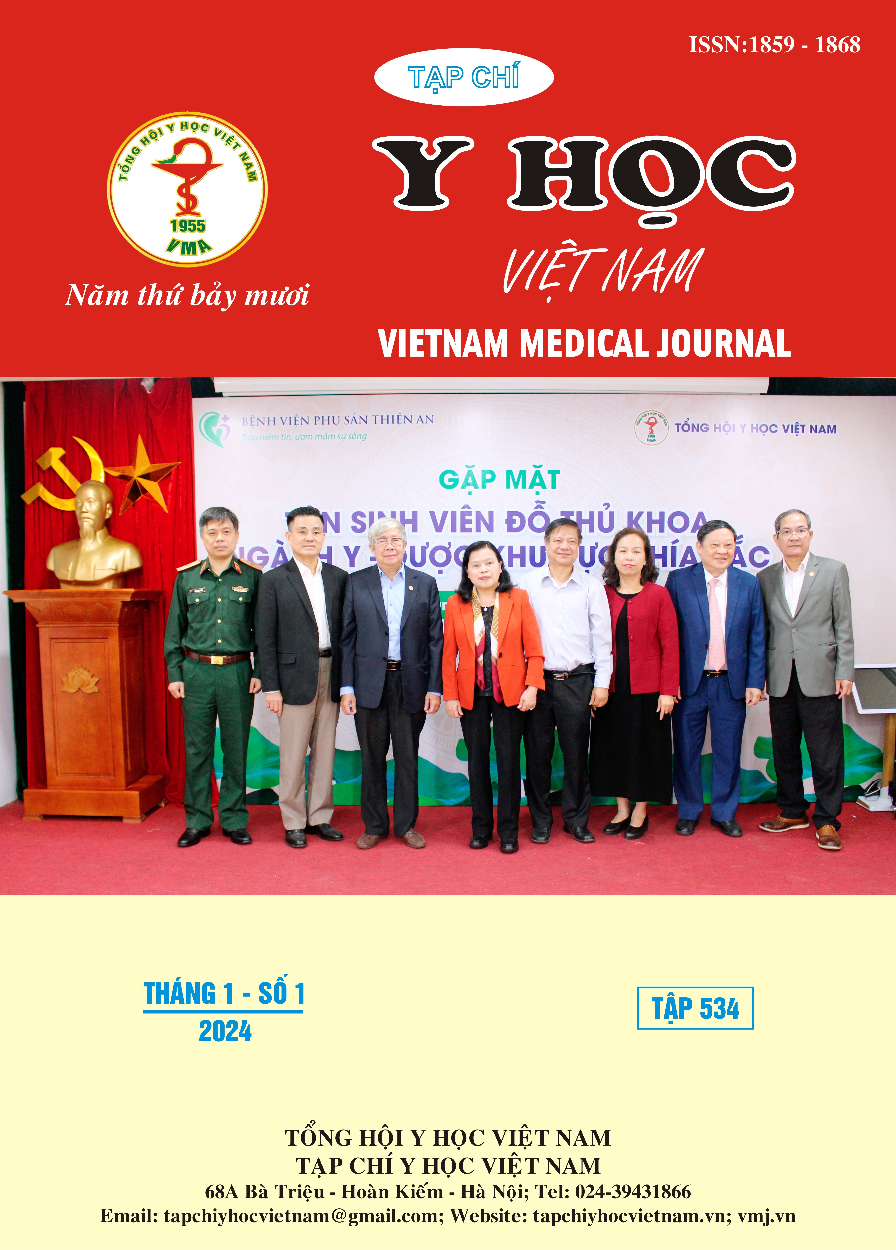EFFECTIVENESS OF COMBINED AEROBIC INTERVENTION IN PATIENTS WITH COGNITIVE IMPAIRMENT AFTER ISCHEMIC STROKE
Main Article Content
Abstract
Objective: Evaluate the effectiveness of combined aerobic intervention in patients with cognitive impairment after ischemic stroke. Subjects and methods: 50 patients with mild cognitive impairment following an ischemic stroke participated in a randomized controlled trial at the Central Geriatric Hospital’s Rehabilitation department between October 2022 and May 2023. The chosen subjects were split into the intervention and control group. The intervention group was treated with sequential aerobic and cognitive training, while the control group received regular motor and cognitive exercises, 3 sessions per week, for 12 weeks. Before and after intervention, patients were evaluated for cognitive functioning using the Montreal Cognitive Assessment, the Frontal Assessment Battery, and motor function using the Fulg - Meyer assessment of lower extremity, the Six - Minute Walk Test and the EuroQoL – 5 Dimension – 5 Level. Results: The MoCA and FAB scales showed a significant improvement in cognitive function in both groups after 3 months of treatment when compared to baseline (p<0.01). The intervention group’MoCA significantly outperformed the control group in terms of improvement (p<0.01). Through 6MWT, FMA – LE scales, the study also assessed the improvement in motor function in both groups, finding that both significantly outperformed their pre – treatment states (p<0.01). Following treatment, the intervention group’s quality of life significantly improved (p<0.01). Conclusion: In patients with mild cognitive impairment following an ischemic stroke, incorporating aerobics into a cognitive rehabilitation program is more effective than the traditional cognitive exercise program.
Article Details
References
2. Gómez-Palacio-Schjetnan A, Escobar ML. Neurotrophins and synaptic plasticity. Curr Top Behav Neurosci. 2013;15:117–36.
3. Jokinen H, Melkas S, Ylikoski R, Pohjasvaara T, Kaste M, Erkinjuntti T, et al. Post-stroke cognitive impairment is common even after successful clinical recovery. Eur J Neurol. 2015 Sep;22(9):1288–94.
4. Nasreddine ZS, Phillips NA, Bédirian V, Charbonneau S, Whitehead V, Collin I, et al. The Montreal Cognitive Assessment, MoCA: a brief screening tool for mild cognitive impairment. J Am Geriatr Soc. 2005 Apr;53(4):695–9.
5. Skolarus LE, Burke JF, Brown D, Freedman VA. Understanding Stroke Survivorship: Expanding the concept of post-stroke disability. Stroke. 2014 Jan;45(1):224–30.
6. Yeh TT, Chang KC, Wu CY. The Active Ingredient of Cognitive Restoration: A Multicenter Randomized Controlled Trial of Sequential Combination of Aerobic Exercise and Computer-Based Cognitive Training in Stroke Survivors With Cognitive Decline. Arch Phys Med Rehabil. 2019 May;100(5):821–7.


